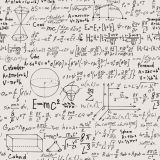In this article:
What is a Computational Mathematics Degree?
A computational mathematics degree focuses on using math to solve complex problems with the help of computers. This degree combines traditional mathematics with computer science to create mathematical models and algorithms that can be used in real-world applications. Students learn how to use computers to solve mathematical problems in areas like science, engineering, finance, and technology.
In a computational mathematics program, students study topics like calculus, linear algebra, programming, and numerical methods. They learn how to create software that can process and analyze large amounts of data, and they become skilled in coding and using computational tools like MATLAB or Python. The goal is to apply mathematical principles to improve efficiency and solve practical problems that are too complex to solve by hand.
Program Options
Program options for computational mathematics degrees can vary depending on the institution and its curriculum. Here are some common program options you might encounter:
- Associate Degree in Computational Mathematics (2 years): Covers foundational math topics like algebra, calculus, and basic programming. Graduates can enter entry-level roles in data analysis or technical support or transfer to a bachelor’s program for more advanced study.
- Bachelor’s Degree in Computational Mathematics (4 years): Provides a strong foundation in both mathematics and computer science, including topics like algorithms, numerical methods, and data analysis. Graduates can pursue careers in technology, finance, engineering, or research or continue to a master’s program.
- Master’s Degree in Computational Mathematics (1-2 years): Focuses on advanced topics like machine learning, computational modeling, and optimization. Graduates can pursue high-level roles in data science, software development, or mathematical research.
- Ph.D. in Computational Mathematics (3-6 years): A research-oriented program that involves creating new mathematical models, algorithms, and computational methods. Graduates often work in academia, research institutions, or industries requiring high-level computational expertise.
Skills You’ll Learn
A computational mathematics degree equips students with a variety of valuable skills that blend mathematics, computer science, and problem-solving. Here are some key skills learned:
- Mathematical Modeling: Students learn how to create mathematical models that represent real-world problems, using them to make predictions and analyze data in fields like science, finance, and engineering.
- Programming and Coding: Students gain strong programming skills, often in languages like Python, MATLAB, and C++, to create algorithms and develop software that solve mathematical problems and process data.
- Numerical Methods: This involves using algorithms to solve mathematical problems that cannot be solved analytically. Students learn how to approximate solutions to complex equations using computers.
- Data Analysis: Computational mathematics students learn how to analyze large sets of data, extract insights, and identify patterns using statistical and computational methods.
- Optimization: Students learn techniques to find the best possible solutions to problems, such as minimizing costs or maximizing efficiency, in fields like logistics, engineering, and finance.
- Problem-Solving: This degree sharpens critical thinking and problem-solving abilities, allowing students to tackle complex, real-world challenges and find solutions through mathematical and computational approaches.
- Computational Simulation: Students gain skills in running simulations to model physical, biological, or financial systems, helping to predict outcomes and test hypotheses.
What Can You Do with a Computational Mathematics Degree?
A computational mathematics degree opens up a variety of career opportunities that combine math, computer science, and real-world applications. Graduates can work in fields like technology, finance, healthcare, and research. Here are some potential career paths:
- Data Scientist: Data scientists use mathematical models and programming skills to analyze large datasets, uncover patterns, and help businesses or organizations make data-driven decisions.
- Software Engineer: With a strong background in both math and coding, software engineers design and build applications, algorithms, and systems for technology companies, healthcare, or finance.
- Financial Quantitative Analyst: Also known as "quants," these professionals use advanced math and computing techniques to analyze financial markets, assess risks, and develop investment strategies in banks, hedge funds, or financial institutions.
- Operations Research Analyst: Operations research analysts use mathematical models to improve efficiency and decision-making in industries like logistics, manufacturing, and transportation.
- Machine Learning Engineer: Using advanced math and programming, machine learning engineers design algorithms that allow computers to learn from data and make predictions, often working in technology, healthcare, or robotics.
- Systems Engineer: Systems engineers apply mathematical and computational techniques to design and optimize complex systems, such as networks, machinery, or software, ensuring they work efficiently and effectively in fields like aerospace or automotive engineering.
- Cryptographer: Cryptographers use advanced mathematical algorithms to design secure communication systems and protect sensitive data, often working for government agencies, tech companies, or cybersecurity firms.

